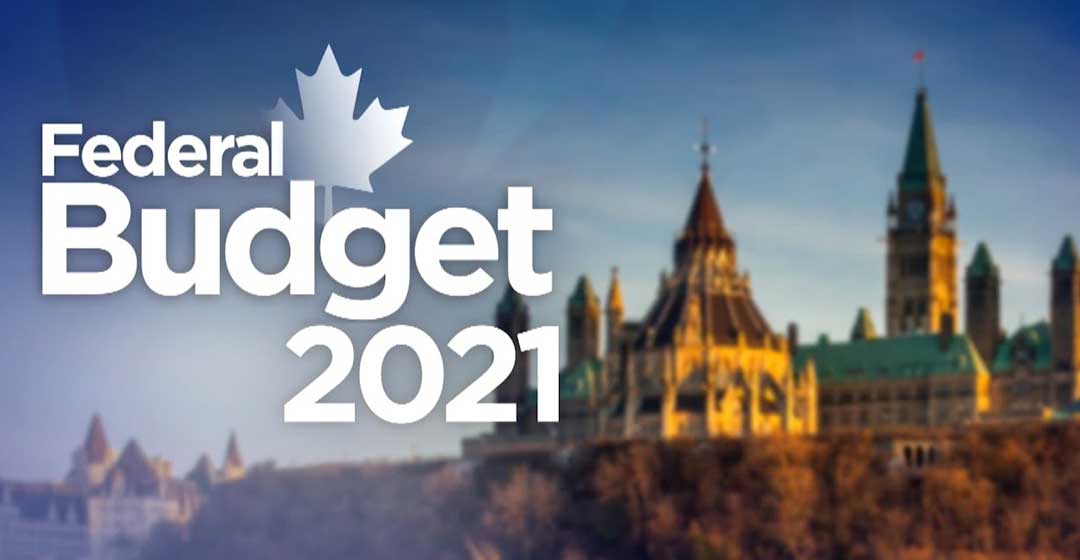
On April 19, 2021, Deputy Prime Minister and Finance Minister Chrystia Freeland tabled in the House of Commons the Liberal Government’s first federal budget in more than two years, A Recovery Plan for Jobs, Growth, and Resilience (Budget 2021). Budget 2021 contains tax measures that provide additional COVID-19 support to Canadian businesses, promote clean energy, introduce new sales and excise tax measures, limit interest deductibility and address certain cross-border financing structures. These measures include:
COVID-19 Support and Recovery
- Extending existing COVID-19 emergency business supports and introducing a new Canada Recovery Hiring Program;
- Promoting immediate expensing of the acquisition of certain depreciable capital property (up to $1.5 million per year) by Canadian-controlled private corporations;
Clean Energy Investment
- Amending the list of eligible Class 43.1 and 43.2 clean energy equipment;
- Offering limited corporate income tax rate reductions for manufacturers of zero-emission technologies;
- Creating a new input tax credit for certain capital investments in carbon capture, utilization, and storage projects;
International Tax/General Corporate Tax
- Introducing new rules to limit the amount of net interest expense that may be deducted in computing Canadian taxable income and to limit the deduction of amounts paid or received under hybrid mismatch arrangements;
- Proposals to overhaul Canada’s transfer pricing rules following the Federal Court of Appeal decision in Her Majesty The Queen v Cameco Corporation(2020 FCA 112);
- Committing to continuing the Government’s work to modernize the general anti-avoidance rule (GAAR);
Sales/Excise Taxes
- Committing to creating an interim digital services tax applicable to digital services businesses and to enact previously announced GST/HST measures applicable to e-commerce platforms;
- Introducing an excise duty on vaping products and a luxury tax on personal use vehicles, boats, and planes;
Compliance/Audit Powers
- Restructuring Canada’s transaction disclosure rules, introducing a new class of “notifiable transactions,” and requiring disclosure of uncertain tax positions; and
- Strengthening the CRA’s audit authority to compel persons to answer all proper questions for any purposes related to the administration or enforcement of, amongst other statutes, the Income Tax Act(Canada) and the Excise Tax Act(Canada).
Source: McCarthy
Newsletters
No Results Found
The page you requested could not be found. Try refining your search, or use the navigation above to locate the post.
Events & Sponsorship
No Results Found
The page you requested could not be found. Try refining your search, or use the navigation above to locate the post.
Articles & Publications
How to Use Excel for Small Business Accounting
Microsoft Excel can make simple accounting tasks more accessible. Explore the features and benefits of using Excel for small business accounting. Accountants are known for wearing pocket protectors and spending their days working in Microsoft Excel. I can vouch for...
Canada’s Child Benefit Boost Is Coming In May & Here’s How To Get It
Eligible families can get up to $1,200 per young child in 2021. Eligible Canadian families receiving the Canada Child Benefit (CCB) can expect a little extra money this month, thanks to the CCB young child supplement (CCBYCS). The extra money — which is up to $1,200...
Tidy Up Your Finances
Time to tidy up your finances. As the tax-filing season ended on April 30th after a year that was upended by the pandemic, financial pros suggest investors take stock of their financial position and do a little spring cleaning. While portfolio and financial management...
About hobbies and side hustles
About hobbies and side hustles You may think it is just a hobby, but CRA may disagree. CRA wants its fair share if you earn money through a little side hustle, business activity, or another extra gig. The agency believes many tax dollars in the past may have gone...
How to Track Business Expenses: 7 Steps for Success
Tracking business expenses is an integral part of maintaining a small business, and as a small business owner, you can't afford to ignore it. Learn how to start tracking expenses with these steps. You may use a variety of methods to track business expenses. Still, to...